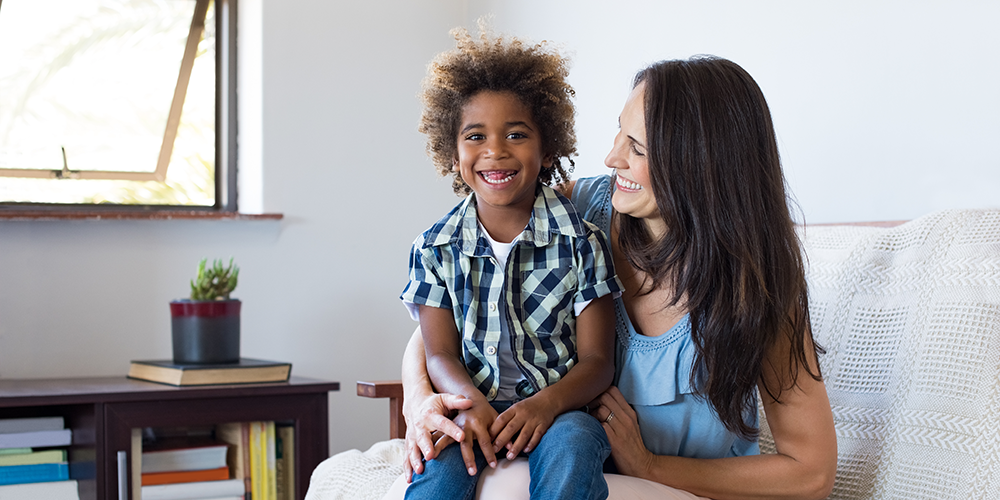Ever wonder what you need to be a foster parent? Check out this list below.
1. A clean(-ish) (not spotless) home with enough beds, and square footage for the number of people you want to
live there.
Square footage varies state to state but you’ll get the exact dimensions just by asking a caseworker or
foster/adoption agency. You don’t need to own your own home or even live in a house.
An apartment will do just fine as long as there is a room for you, and a room for the child(ren), running water, no
infestations, and it can pass a fire and safety inspection. My caseworker is pretty laid back but some are fussier.
Be prepared to keep you home cleaner than usual if you’re a little bit like me and kind of sloppy/disorganized (or
have kids that constantly undo what you just cleaned up).
2. A working, insured vehicle that can haul as many people as you want to haul.
Plan on adopting a sibling group of six? You’ll need that minivan you’ve been eyeballing on the way home from work.
Just want one teen boy and you’re a single man? That red sports car will earn you cool points with your new son and
will be just fine.
3. A stable income.
You may get a stipend from the state, but it won’t cover much, and it won’t come when you need it to. Meanwhile the
kids will have come to your house with the clothes on their back and nothing else, so off to the store you go at midnight.
You needn’t be wealthy, but you will need to have money to support yourself and your new kids as they settle in.
4. A clean background check.
You’ll be sent for a FBI fingerprinting and federal background check. You’ll also need to write down all of your family members
names and birthdays, and all the places you have lived and worked for the past 10 years. They want to make sure the kids
are going into a safer, better place than they are leaving. Please don’t take this personally. I’m sure you’re a good person. Have
your closest, most reliable family member available to answer questions about addresses and birthdates when it comes time to
fill out the packet. It’s a whopper.
5. A support network.
This is both critical and overlooked. Fostering can be (but isn’t always really, really, really difficult. Kids may go back to hard family
situations and there is nothing you can do about it. Kids may stay, you may eventually adopt them, and they will drive you bonkers,
and there is nothing you can do about it.
What will help make or break you as a foster parent will be the people you surround yourself with–to go through the good and the
bad with. Find a support group for foster parents near you. Take the class with a friend so they’ll know what you are going to go
through. Pick an activity that is your “one thing” that won’t be interrupted or ignored (for my husband it is playing ice hockey, for
me it is running), and don’t let life stop you from doing that thing.
Get your people around you to rally when things go sideways. I cannot be more thankful for the dear ones that stepped up when
kids needed the hospital, or we just couldn’t take one more wretched minute of tantruming so there was someone to tag out to.
You might not think you’ll need this. You might not even like people, but you’ll need them to make this whole fostering thing work
for you and your kids.
6. An agency.
This isn’t imperative if your state’s CPS will license foster homes. Some states rely exclusively on foster care agencies for
training and licensing. A quick internet search will reveal where your state stands on this matter. An agency will help you
navigate the intricacies of getting licensed and sometimes buffer CPS from you. Find one that matches your faith (or lack
thereof), your ideologies, and will have your back if something goes wrong.
7. Patience.
You will need to be patient with the agency to get you licensed. Then you’ll need to be patient to get a placement. Then
you’ll need to be patient with CPS when they change their minds about where the placement (aka a real, living, breathing
child) will be going. Then you’ll need patience with the actual, eventual child. You don’t think you’re impatient now. I
thought I was a very patient person. I was very, very wrong. Ha.
8. Flexibility.
Things will constantly change. The goals for the child and your home will change. You’ll have to learn to roll with it or you’ll
find yourself very broken. You might anyway, if I’m being honest. It’s worth it though.
9. Love to give.
Lots of it. These kids come into foster care through no fault of their own and often have no idea what is happening. Your love,
kindness, and patience with them as you navigate the unknown together will help them in unfathomable ways. They may not
even realize what you’re doing for them in the moment. In fact, they will probably at first see you as the enemy. You will still
need to love them with a love bigger than yourself.
10. Time.
There will be doctors appointments, therapy appointments, school visits, sports activities, things you have never thought
about doing before but you suddenly have 4 occasions of having to run to or accommodate in one week. (I’m giving you the
side eye ice hockey.) Your life is no longer yours to run. CPS will be in your home at least once a month. Your agency worker
will be in your home at least once a month. You’ll have trainings you have to attend a few times a year.
Anything after those things is gravy. If you feel your heart tugging you toward foster care I urge you to at the very least
investigate if it isomething you could do. Attend an informational meeting at an agency. Ask questions of a friend that fosters.
Become a certified babysitter for a foster family and see what their lives look like from the inside.
You won’t regret it.




